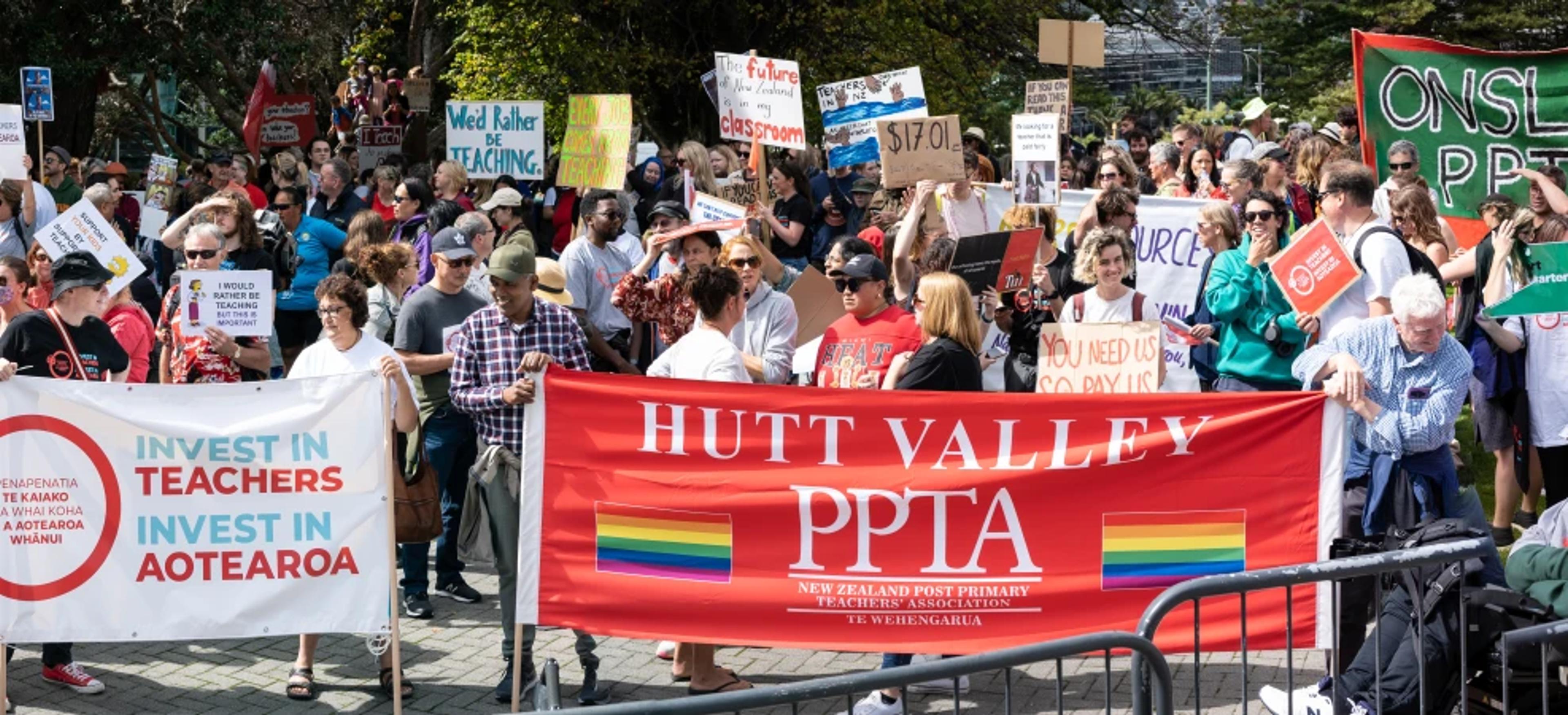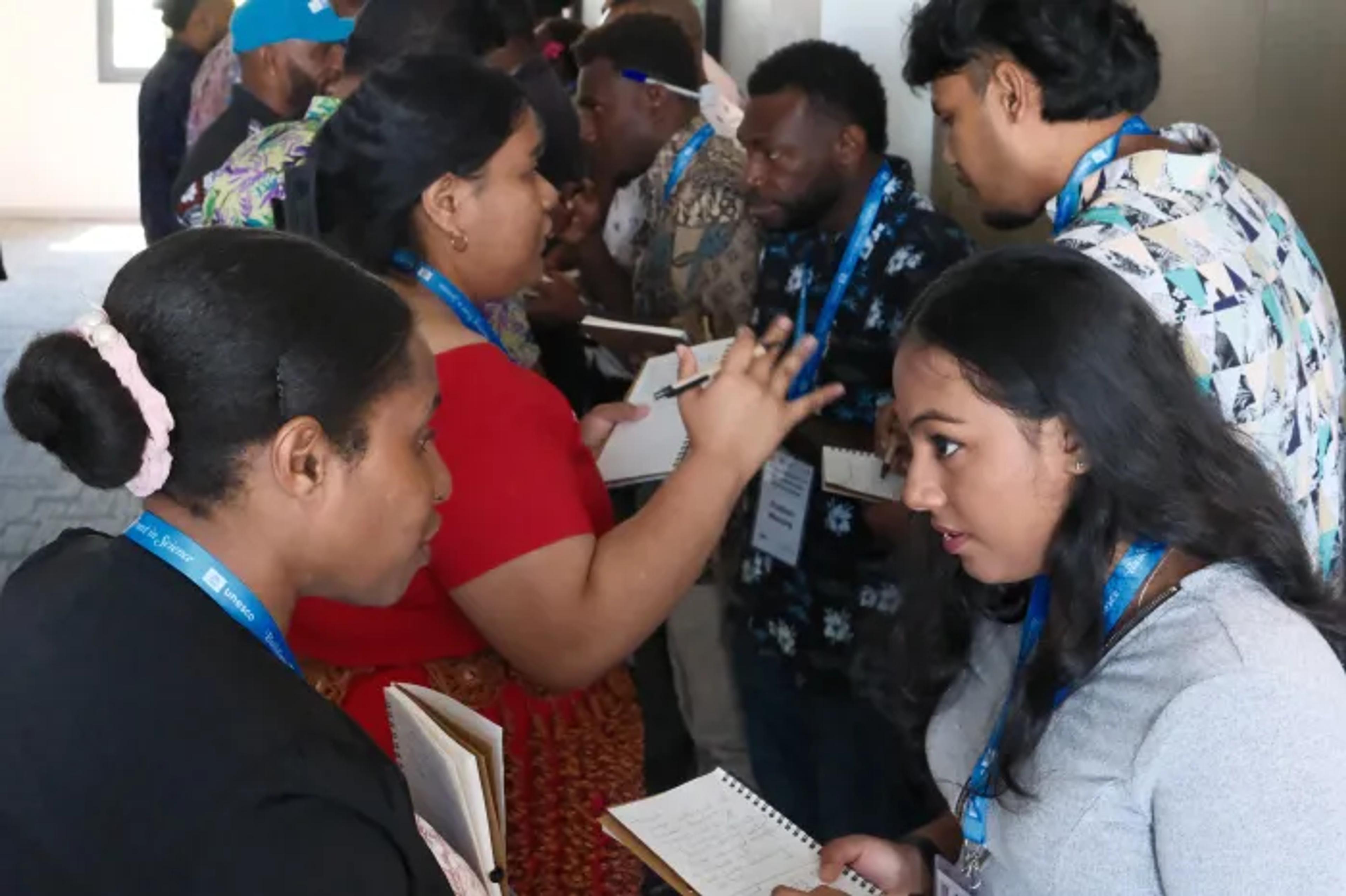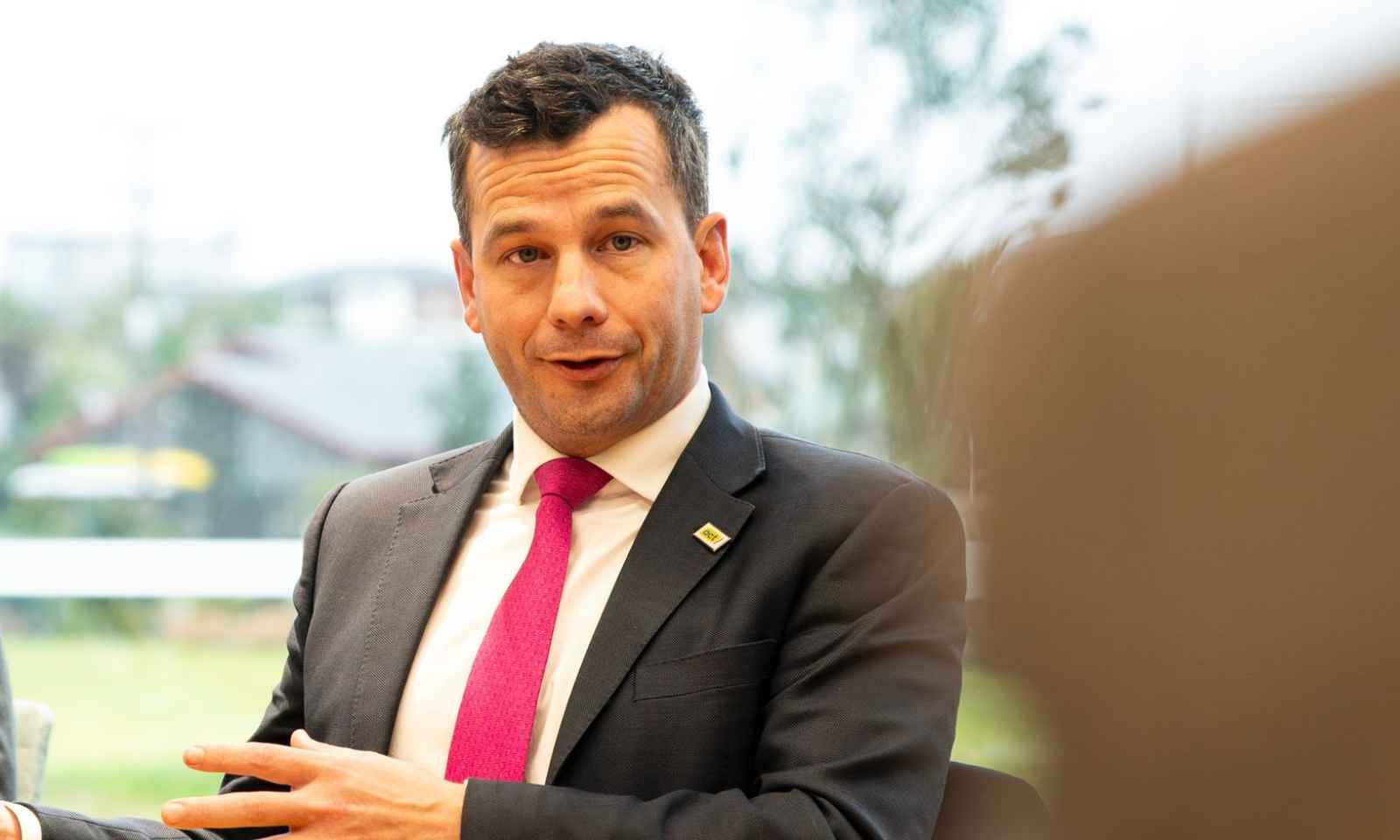

PPTA Te Wehengarua members support their colleagues across the country.
Photo/PTTA
Teachers strike for fair pay and support amid education reforms
Principal Ragini Maxwell discusses the impact of a nationwide protest by secondary school teachers over inadequate pay and working conditions.



Pacific umpires shine as netball pathways reveal strong showing in 2025


Pacific creators take centre stage as Matangi and Savali dominate 2025 TikTok Awards



Pacific umpires shine as netball pathways reveal strong showing in 2025


Pacific creators take centre stage as Matangi and Savali dominate 2025 TikTok Awards
Teachers in secondary schools across Aotearoa New Zealand are making their voices heard as they stage a strike today, shutting down high schools throughout the country.
Close to 20,000 teachers are protesting against a proposed pay raise of just one per cent each year for the next three years, which they believe is far too low, especially when compared to the 10 per cent increase that politicians receive.
The Post-Primary Teachers Association has accused the Government of offering the worst pay deal for teachers in a generation.
Many educators are concerned that such a minimal increase won’t help keep current teachers in their jobs or attract new ones, especially during a time of significant changes to the National Certificate of Educational Achievement (NCEA) system and increasing pressure in classrooms.
Ragini Maxwell, the principal of Porirua College, says that while the strike disrupts students’ education, it highlights an important issue: the lack of competitive pay and support for teachers.
In an interview with William Terite on Pacific Mornings, she says the current pay offer essentially amounts to a pay cut when inflation and the rising cost of living are taken into account.

Teachers in Whakatāne in the Bay of Plenty join their colleagues across Aotearoa to protest on Wednesday. Photo/PTTA/Facebook
"Teachers are always extremely reluctant to go to this length, but we simply cannot keep and attract people to our profession with these sorts of pay offers," Maxwell says.
"You look at politicians over this term, they're getting 10 per cent over the three years of the term, while we would get three per cent at this offer. What it is essentially is a pay cut for teachers at a time when we're being asked to do more and more work, and it's simply unsustainable."
Deputy Prime Minister David Seymour says the country is facing tough economic times, limiting resources for teacher pay increases.

David Seymour has defended recent government moves, saying that teachers have received a 14 per cent pay rise in the last two years. Photo/ACT/Facebook
He says that teachers have received a 14 per cent pay rise in the last two years, with average salaries now exceeding $100,000. But he warned that higher teacher salaries could impact funding for teacher aides.
In response to recent changes in pay equity, which have faced criticism from five unions, Seymour highlighted the government's efforts to create a sustainable process for pay equity claims.
The Green Party, through spokesperson Kahurangi Carter, condemned the government's changes, claiming they violate fundamental rights, including protections against gender-based pay discrimination.
Maxwell calls for better support for culturally-relevant education, particularly for Pacific students, as upcoming reforms threaten to separate education from students' cultural backgrounds.
She is concerned about the pace of changes to the curriculum, saying that introducing a new system too quickly, without adequate preparation, is unfair to both teachers and students.
At Porirua College, the community is focused on creating a curriculum that reflects their diverse student body, which includes many Pasifika and Māori learners.
Watch Ragini Maxwell's full interview below.
Maxwell says their school has developed unique programmes tailored to these students' needs, but the proposed changes could hinder such initiatives by enforcing standardised subjects that don’t necessarily consider students' backgrounds.
We're trying to create a strong curriculum that is within students' cultures, where they can learn as who they are.
"Their curriculum changes and the assessment changes are deliberately designed to stop that sort of curriculum.
"They're going to set traditional subjects that are the only ones that will be assessed, so that we can't have this different sort of learning.
"There's a lack of recognition that Aotearoa is a multicultural society and that that is our future, and that learning within our different cultures is a really important part of who we are. This is a step back to some remembered New Zealand of the politicians' past."
She warns that if the government continues on its current path regarding educational reform and teacher pay, it could have negative consequences for the quality of education provided to students.
Watch Will's Word below
Maxwell says that when teachers leave, finding qualified replacements who understand and relate to the local culture can be challenging, particularly if they come from different countries.
She urged recognition of New Zealand's multicultural society and the importance of keeping education relevant to all students.
She says teachers are calling for fairer pay and better support to ensure they can continue providing high-quality education in a way that respects and includes the diverse backgrounds of their students.
"If you want a high-quality education system, start listening to people working in education who know what we're talking about."